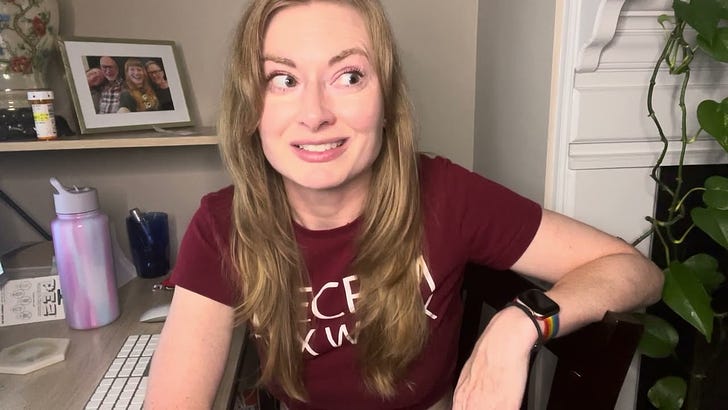Most of the time, when you pay workers more they tend to work harder and get better results.
Now, cops are exceptional (mostly in a bad way) in many respects. But this is one area where I think the rule still applies. I think if we want better results, and we certainly should, we should pay officers well, treat them like professionals, and hold them to high standards.
How much officers make
I know what you’re thinking. Aren’t cops already paid very well? In some cases, yes. And in general, also yes. In 2021, the median sworn law enforcement officer’s salary of $66,020 per year was more than a third higher than the national median. But in some cases no. And in every case, the way they’re paid is very stupid.
Three main benefits to higher officer pay
Let’s look into the three main ways that changing the way we pay officers can improve outcomes.
1. Fewer hours = fewer fuckups
Before we pay officers more, we need to change how they’re paid. It turns out median salary numbers don’t include overtime pay and other extras.
Most officers’ union agreements entitle them to "time and a half" for every hour they work after 40. Departments also pay more for "overtime" work such as, for example, off-duty court appearances. If a department calls an officer back to duty for any reason, for any amount of time, the officer is often entitled to a minimum of four hours of pay.
NYPD officers, for example, earn a modest starting salary of $42,000 a year. But they can bump that up considerably with holiday pay, longevity pay, uniform allowances, night differentials, and overtime.
Overtime is the biggest source of officer income after base pay. NYPD officers regularly use overtime to more than double their paychecks. Overtime is supposed to save money by helping departments avoid hiring more officers and not counting toward retirement pay. But in places like New York, overtime blows city budgets and balloons pension obligations.
Plus, maybe departments should hire more officers. Research shows more cops equals less crime. Overtime, by contrast, has no effect.
This only makes sense, since tired, overworked officers are more likely to cut corners and make mistakes. Data shows tired cops are more likely to get injured on the job, compromise public safety, and cause avoidable accidents that come with significant civil liability.
Forcing officers to work long hours for more pay means cops can’t max out their earnings without compromising public safety. If we want cops to perform at their best, use good judgement, and otherwise act like professionals maybe we should consider paying them like full-time professionals rather than like blue collar grunts.
2. Higher pay = better performance
Tired, overworked cops aren’t going to perform well. And they haven’t been. The first step to better policing is to pay cops like full-time, professionals on a salary instead of hourlies who work overtime.
Step two is to ensure every cop is paid a living wage.
Many officers earn poverty wages. In Hillsdale, MO, for example, the average patrol officer earns $23,000. Perhaps you’re not shocked that officers in wealthier, whiter cities such as Town and County and Des Peres earn $70,000.
This pay discrepancy is especially galling when you consider that less crime tends to happen in wealthy suburbs.
The fact is that better paid officers make more arrests and perform better on the job.
Underpaid officers do not.
In fact, low-paying departments are known for “a barrage of federal charges for beatings of teenagers and sex assault, state charges of murder and private lawsuits for police brutality.” The stigma of working in poorly paid cities is so great that these officers often can’t get hired in wealthy suburbs.
“We should not assume that the most poorly-paid cops are the worst cops,” says David Harris, a University of Pittsburgh law professor who studies policing. But the less you pay the more “the chances increase that you don’t attract the best officers.”
It stands to reason that top cops don’t tend to work for bottom departments. However, it doesn’t make sense to attribute the entirety of the performance gap to selection effects. The reality is that tons of research indicates that poverty itself erodes performance.
Research shows that poverty literally shrinks your brain and leads to worse decision-making.
Take Robert Howard, 37, an officer in Hillsdale, Missouri. He earns $10.50 an hour and is thousands of dollars in debt. As a result, Howard works from 8 p.m. to 1 a.m. two nights per week at a local bar. Do you want a sleep-deprived and stressed out officer answering your call?
Poverty is also associated with graft. In 2013, police arrested two Hillsdale police officers for allegedly selling heroin. “If you are not making enough to pay for what you need, people do stupid things,” Howard said.
In addition to putting cops on a salary rather than paying them by the hour, we also need to make sure every cop earns enough to live on. Pay disparities mean many officers have to work multiple jobs, game the system, and/or work in wealthy suburbs to earn good money.
Making all cops well-compensated, full-time salaried professionals would improve policing by improving the quality of applicants, improving officer performance, and raising standards.
3. Better pay = better applicants
More and more officers are quitting before they hit retirement age. At the same time, departments are having a hard time replacing them as the number of people who want to become cops has declined over the past decade. Can’t say I blame them, personally.
You can do a lot through training and experience to make good cops better. But there’s only so much you can do if no one wants to be a cop and you end up having to hire whoever applies.
Increasing officer starting pay and professionalism will attract more people to the field. And it will entice the kind of people who are smart and capable enough to do other things to apply, resulting in higher quality cops.
Plus, getting rid of overtime will attract Millennials and Gen Z, who prioritize flexible hours when looking for a job and are turned off by the idea of having to work long, inflexible hours to maximize their pay.
In sum
How much can you realistically expect from a workforce with a small pool of applicants who are stretched thin, overtired, and whose brains are struggling to function despite chronic sleep-deprivation and poverty?
UND Associate Professor of Law Steven R. Morrison teaches and writes about criminal law, criminal procedure, post-conviction remedies, white-collar crime, and constitutional law. According to Dr. Morrison, citizens will hold officers to higher standards and insist on a system of “robust, internal self-regulation” once we start paying them like high-value salaried professionals. He recommends cities pay experienced officers $200,000 per year.
This alone can’t fix policing. But we also can’t hope to fix policing without higher quality cops who are set up to succeed. The evidence indicates that getting rid of overtime and paying cops like the full-time, salaried professionals we need them to be will improve candidate quality and improve performance on the job.
Sex and the State is a newsletter at the intersection of policy and people. Like it? Upgrade to a paid subscription, buy a guide, follow me on Twitter, support me on Patreon, or just share this post 🙏
~~~~~
This ⬇️ is an affiliate link! Sign up today to support me!
Join the reading revolution! Get key ideas from bestselling non-fiction books, distilled by experts into bitesize text and audio. Explore our vast library of over 5,500 titles and stay up-to-date with 40 new titles added each month.

















Share this post